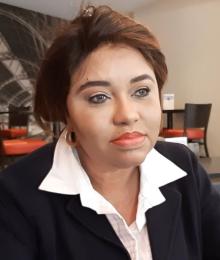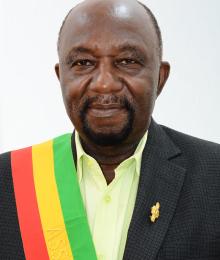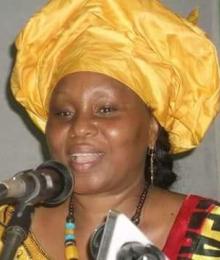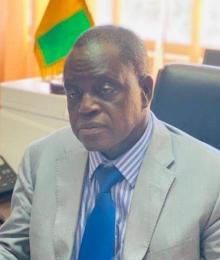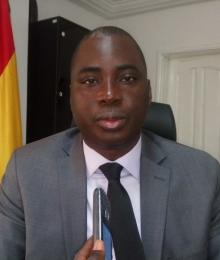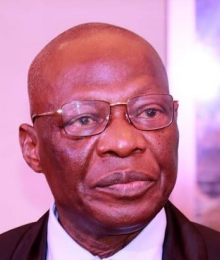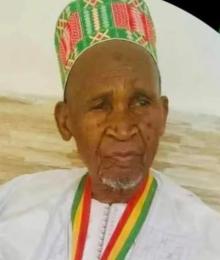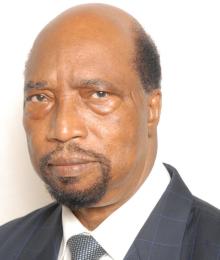
Alpha Ibrahima Sila Bah est une figure marquante de la politique guinéenne, reconnu pour son engagement en faveur du développement économique, de la gouvernance démocratique et de la transparence. Ancien député et haut cadre, il a occupé des postes stratégiques au sein de l’Assemblée nationale, notamment comme président de commissions et vice-président. Son parcours s’étend également à l’international, avec une carrière au sein de la Banque Mondiale et de la Banque Islamique de Développement. Défenseur d’une économie compétitive et d’une éducation accessible, il milite pour une Guinée plus équitable et moderne, tout en restant une voix influente sur la scène politique nationale.
Introduction
Alpha Ibrahima Sila Bah is a prominent figure in Guinean politics. A former Member of Parliament and a high-ranking official in the fields of economy and development, he has left his mark on the political scene through his commitments, bold stances, and international experience. As a member of the Guinean Party for Renaissance and Progress (PGRP), he has held strategic positions both within the National Assembly and in international organizations. His career reflects a constant drive to defend Guinea's interests and promote sustainable and inclusive development.
Political Career
Engagement in the National Assembly
Alpha Ibrahima Sila Bah has served in the National Assembly of Guinea multiple times, holding key positions of responsibility:
- 8th Legislature (2013-2020): President of the Commission for Communication and New Information and Communication Technologies.
- President of the Commission for Commerce, Industry, Tourism, and Handicrafts.
- 9th Legislature (2020-2021): Fourth Vice-President of the National Assembly.
- Member of the Commission for Economic, Financial, Planning, and Cooperation Affairs.
His tenure in the National Assembly was marked by a commitment to transparency, economic governance, and the reform of democratic institutions.
Positioning and Actions
Sila Bah became known for his firm stances on several crucial issues. He opposed certain electoral reforms, arguing that they threatened citizens' rights and popular sovereignty. In 2016, he condemned the amendment of the electoral code, stating, "If the electoral code is modified, there will be no peace," emphasizing the need for free and transparent elections.
In January 2015, during an opposition rally, he made a strong statement against the government, comparing the political crisis to a disease to be eradicated:
"We will eradicate two viruses that are ruining the country. First, Ebola—we will drive this virus out of Guinea. The second virus is division. Who embodies division? It is Alpha Condé."
These remarks reflected his determination to combat poor governance and political divisions hindering the country's development.
International Experience and Economic Expertise
Before joining Guinea's political scene, Alpha Ibrahima Sila Bah had a distinguished career in economics and international development. He held high-ranking positions in renowned institutions:
- Former Sub-Regional Representative (Guinea/Sierra Leone) of the Islamic Development Bank (2003-2010): He played a key role in coordinating development programs in the region.
- Former World Bank Official (1973-1998): He contributed to numerous projects aimed at improving infrastructure and economic governance across Africa.
- Former Official in the Roads and Bridges Department of Washington, D.C. (1966-1973): This experience strengthened his expertise in infrastructure and urban planning.
His work in these institutions provided him with an in-depth understanding of economic issues and development policies, which he later applied to his country's benefit.
Vision and Proposals for Guinea
Economic Development and Reforms
Alpha Ibrahima Sila Bah has always advocated for a more competitive and diversified Guinean economy, emphasizing key areas:
- Improving the business environment to attract foreign investment and stimulate growth.
- Modernizing infrastructure to promote industrialization and trade development.
- Reforming the energy sector, particularly by encouraging the use of renewable energy.
- Establishing transparent economic governance to combat corruption and ensure responsible management of public resources.
Education and Youth
During his mandate, he advocated for accessible and compulsory education for all Guinean children, considering literacy a fundamental pillar of development:
"All Guineans must be literate. It should be mandatory to send children to primary school. This is the ABC of development—everything starts there."
He particularly emphasized the need to develop educational infrastructure in rural areas and improve teacher training.
Governance and Democracy
Alpha Ibrahima Sila Bah has consistently defended the decentralization of power, asserting that citizens should have the right to directly elect their local representatives. He opposed any attempt to amend the constitution to weaken democratic institutions. In 2018, he warned against manipulating institutions for political gain:
"Guinea has chosen decentralization. Power must return to the grassroots, and the people must decide the future of their local communities."
Legacy and Impact
Despite the end of his mandate in September 2021, Alpha Ibrahima Sila Bah remains an influential voice in Guinean politics. His career, positioned at the crossroads of politics and economics, makes him a crucial actor in the national debate.
He has made a lasting impact on the country's recent history through his efforts to promote transparency, economic development, and democracy. His commitment to a more just and prosperous Guinea continues to inspire many young leaders and political actors.
Conclusion
Alpha Ibrahima Sila Bah represents a generation of Guinean leaders dedicated to transforming their country. His political and professional journey reflects an unwavering commitment to development, social justice, and democratic governance.
Through his actions and positions, he continues to influence Guinea's political and economic landscape, leaving a lasting mark on the nation's history.














